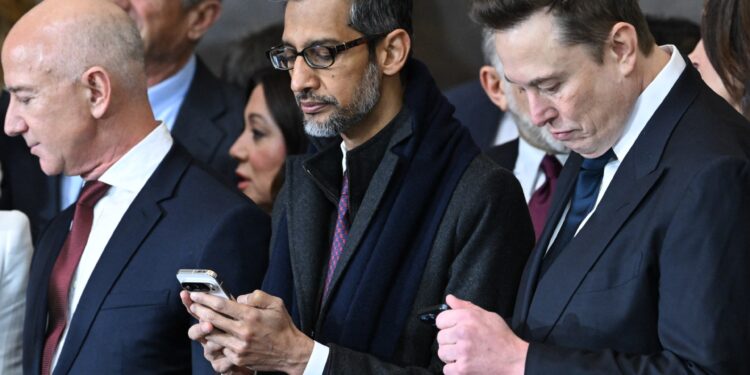Less than a year after the collapse of Google’s plans to acquire the Israeli cybersecurity company Wiz, executive officials managed to conclude a deal after a wave of negotiations that occurred during US President Donald Trump’s constitutional oath only eight weeks ago, according to Reuters.
Google announced that it had raised its original offer from $ 23 billion in July to 32 billion dollars, making it one of the largest technical deals ever, and has increased the separation fees significantly to more than $ 3.2 billion, according to people familiar with the agreement.
But the reason for the real deal was closed, according to the sources with which Reuters spoke with the change in the White House, which brought with it a more lenient review of the anti -monopoly issue during the Trump era.
These people said that Google made another attempt in the past fall while Wiz was studying a potential primary public offering. Where the negotiations continued intermittently over several months, executive officials began regularly to put the details of the deal after Trump’s inauguration on January 20 and his appointment of major officials in the Anti -monopoly Department, according to these people.
Vazal Merchant also joined Wiz Company as a new financial president in January, while the company was still studying a potential primary public offering. One person said Merchant played a major role in drafting the deal, alongside CEO Assaf Rapirt, which helped to complete it. Two people said Thomas Corian, head of the cloud computing department in Google, was also a major engineer of the agreement.
Futered deal
Executive officials at Wiz have found it difficult to reject Google’s average offer, which has evaluated the emerging cyberspace security company by 39% than the previous offer, and also included loyal reverse annulment fees over $ 3.2 billion, or more than 10% of the value of the deal, paid to Wiz in the event of the deal fails, according to the sources. Google believes that this bonus is justified, given the growth of the annual Wiz revenue by 70% and its annual revenues, which exceeds $ 700 million, according to a source familiar with the discussions.
Reverse termination fees, known as separation fees, are paid by buyers to compensate the targeted companies when deals fail for regulatory reasons.
These high separation fees are not common in corporate deals in the United States, although these fees have increased in recent years with the increasing organizational threats to large deals globally. According to a study conducted by the Fenwick & West company, which reviewed deals of no less than one billion dollars, which were signed in 2023, the separation fees ranged on average between 4% and 7% of the total value of the deal.
It is not clear whether Google and Wez had contacted the American monopoly authorities before signing the deal.
Some companies have previously informed US monopoly bodies to prepare them before signing any deal. For example, in 2023, Tempur Seal sought to obtain the approval of the US Federal Trade Committee before signing a $ 4 billion deal to acquire Mattress Firm.
Two people said that the executives of Wiz were cautious after seeing Adobe’s attempt to acquire Figma with a value of $ 20 billion due to the anti -monopoly scrutiny in late 2023. Google is currently facing two cases in the US Department of Justice regarding its dominance on the online search and others related to advertising technology.
Google offered the payment fees for about 2 billion dollars to Wiz at that time – an amount that Wiz felt is not enough to bear the risk of signing the deal, according to the sources.
Bank of America has advised Google on the deal, while Goldman Sachs advised Wiz.
The sources told Reuters that some of the largest supporters of the investment capital of Wiz were concerned that the then president of the Federal Trade Committee, Lina Khan, would fail the deal. People familiar with the deal reported that the appointment of Trump to Andrew Ferguson as Chairman of the Federal Trade Committee, and a basket for the leadership of anti -monopoly reviews in the Ministry of Justice, gave the executives of both companies more confidence in making a smoother regulatory review.
Google, Wiz, White House, and the Ministry of Justice did not respond to requests for comment immediately, according to a Reuters report.
Was Google founders compensated?
The Founder of Google, Sergey Brain, lost 22 billion dollars as a result of the decrease in the shares of “Alphabet Inc” by more than 7%, this came after he retracted his previous stances against Trump and accepted an invitation to a dinner in Maralago, where the Trump resort in which he invited dignitaries and businessmen as part of his campaign.
The fortunes of 5 billionaires, who were present at the inauguration ceremony of Donald Trump as President of the United States, witnessed a major shrinking, as they lost a total of 209 billion dollars of their personal wealth after only 7 weeks of Trump’s inauguration.



